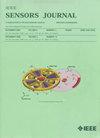A Novel Solution for Solving Time-Varying Algebraic Riccati Equations and Its Application to Sound Source Tracking
IF 4.3
2区 综合性期刊
Q1 ENGINEERING, ELECTRICAL & ELECTRONIC
引用次数: 0
Abstract
Solving time-varying algebraic Riccati equations (TVAREs) is crucial in sound source tracking and optimal control. It is worth noting that previous studies have focused primarily on solving static algebraic Riccati equations (AREs) or interference-free TVAREs. Nonetheless, in real-world solution systems, AREs are often time-varying and subject to a variety of external disturbances. To address these problems, we propose two strong initial state discrete noise-resistant zeroing neurodynamics (SDRZND) algorithms for determining the solutions to TVAREs. First, we introduce a bounded smoothing of the strong initial state coefficient to accelerate algorithm convergence while avoiding the additional impulse noise that nonsmoothed coefficients in the discrete algorithm might generate. Then, an integral feedback term is designed and integrated with this coefficient to enhance the algorithm’s robustness. Subsequently, to further improve the algorithm’s flexibility, we introduce a variable time step, leading to the SDRZND-Euler (SDRZND-E) and SDRZND-Taylor–Zhang (SDRZND-TZ) algorithms presented in this article. Lastly, the effectiveness, noise resistance, and practicality of these algorithms are verified through theoretical analysis, numerical simulations, and sound source tracking experiments.求助全文
约1分钟内获得全文
求助全文
来源期刊

IEEE Sensors Journal
工程技术-工程:电子与电气
CiteScore
7.70
自引率
14.00%
发文量
2058
审稿时长
5.2 months
期刊介绍:
The fields of interest of the IEEE Sensors Journal are the theory, design , fabrication, manufacturing and applications of devices for sensing and transducing physical, chemical and biological phenomena, with emphasis on the electronics and physics aspect of sensors and integrated sensors-actuators. IEEE Sensors Journal deals with the following:
-Sensor Phenomenology, Modelling, and Evaluation
-Sensor Materials, Processing, and Fabrication
-Chemical and Gas Sensors
-Microfluidics and Biosensors
-Optical Sensors
-Physical Sensors: Temperature, Mechanical, Magnetic, and others
-Acoustic and Ultrasonic Sensors
-Sensor Packaging
-Sensor Networks
-Sensor Applications
-Sensor Systems: Signals, Processing, and Interfaces
-Actuators and Sensor Power Systems
-Sensor Signal Processing for high precision and stability (amplification, filtering, linearization, modulation/demodulation) and under harsh conditions (EMC, radiation, humidity, temperature); energy consumption/harvesting
-Sensor Data Processing (soft computing with sensor data, e.g., pattern recognition, machine learning, evolutionary computation; sensor data fusion, processing of wave e.g., electromagnetic and acoustic; and non-wave, e.g., chemical, gravity, particle, thermal, radiative and non-radiative sensor data, detection, estimation and classification based on sensor data)
-Sensors in Industrial Practice
 求助内容:
求助内容: 应助结果提醒方式:
应助结果提醒方式:


